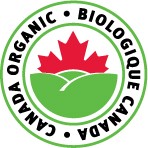Kyle Unger, was acquitted of murder in Manitoba a few days ago. No sooner, than he was out on the steps, the lawyer who acted for him has suggested a possible civil action against the government. He stated there were numerous charter violations and the authorities were negligent in their investigation.
Unger will join the ranks of a handful of other people who were imprisoned for crimes they didn’t commit and successfully sued. A Toronto radio station quoted a Manitoba official as stating they will not provide any financial compensation for Unger. It will be interesting to see if that position will be maintained when the civil suit starts.
In 2007 the Supreme Court of Canada discussed the issue of suing police authorities for negligent investigations in the case of Hill v. Hamilton-Wentworth Regional Police Services Board, 2007 SCC 41, [2007] 3 S.C.R. 129.
In that case the Plaintiff was charged with robbing a bank and spent 20 months in jail only to be acquitted later. He sued the Hamilton-Wentworth Police in a civil proceeding. The Supreme Court held:
The police are not immune from liability under the law of negligence and the tort of negligent investigation exists in Canada. Police officers owe a duty of care to suspects. Their conduct during an investigation should be measured against the standard of how a reasonable officer in like circumstances would have acted. Police officers may be accountable for harm resulting to a suspect if they fail to meet this standard.
Despite this the Plaintiff was not successful. The court stated:
In this case, the police officers’ conduct, considered in light of police practices at the time, meets the standard of a reasonable officer in similar circumstances and H’s claim in negligence is not made out.
It seems highly likely that a jury would find in Unger’s favour regardless.

